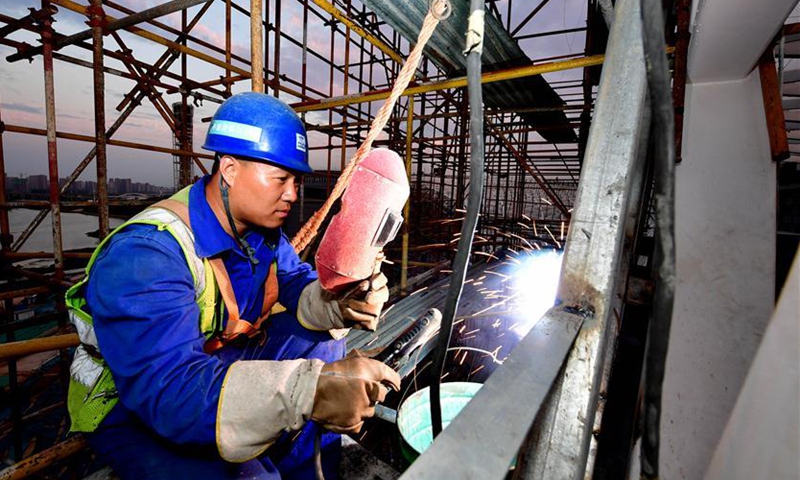COMMENTS / EXPERT ASSESSMENT
US efforts to turn Southeast Asia against China won’t succeed

Photo: Xinhua
The US hasn't ever stopped its efforts to push countries and regions in Southeast Asia to join its anti-China clique, which is not simple or achievable as China and Southeast Asian countries maintain cooperative ties way deeper and wider than their disagreements.
The Philippines has recently made it clear that it won't halt infrastructure projects involving Chinese firms blacklisted by the US and will act in its own interests, Reuters reported, citing Harry Roque, spokesperson for Philippine President Rodrigo Duterte.
The US has been relentlessly targeting Chinese firms amid worsening bilateral relations. On August 26, the US announced it would sanction two dozen Chinese companies that it claims help to build artificial islands in the South China Sea.
Roque told a regular briefing that the Philippines will not follow Washington's move to sanction these firms, because infrastructure is a national priority.
The latest remarks showed the Philippines' sovereignty stance is in accordance with its own national interests.
Although disputes remain, China and the Philippines have enhanced economic cooperation in recent years with increased mutual investment and joint efforts in projects under the framework of the China-proposed Belt and Road Initiative and Maritime Silk Road.
China has remained the Philippines' top export market, with almost 27 percent of the Philippines' total exports being shipped to the world's second-largest economy, the Xinhua News Agency reported in July, citing data from the Philippines' Department of Trade and Industry.
The US efforts to cajole or threaten Southeast Asian countries to pick sides is not going to succeed as China and these countries have wide-ranging and comprehensive connections in economic, cultural and personnel exchanges based on mutual benefits. It is a solid foundation that won't be easily shattered by one US policy or certain US politicians' instigation.
The Association of Southeast Asian Nations (ASEAN) has overtaken the US to become China's largest trade partner. Trade between China and ASEAN grew 5.6 percent year-on-year in the first half of the year, despite the COVID-19 pandemic.
The division of labor among China and Southeast Asian countries is based on each side's comparative advantages. The bilateral trade volume is expected to see accelerating growth and will far exceed the trade between China and the US.
Though the US has been promoting its so-called decoupling campaign with China, it's hard for it to truly receive positive responses in Southeast Asia. Southeast Asian countries have been inclined to take relatively independent diplomatic positions, rather than simply picking sides.
Meanwhile, challenges remain against the backdrop of increasing uncertainties across the world. The US will not stop its efforts to sow discord in the Asian-Pacific region, and countries are facing both external and internal pressure. It is suggested that countries would pursue independent and cooperative policies.
The article was compiled based on an interview with Zhao Gancheng, director of the Center for Asia-Pacific Studies at the Shanghai Institute for International Studies. bizopinion@globaltimes.com.cn


